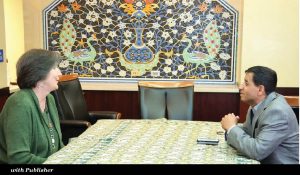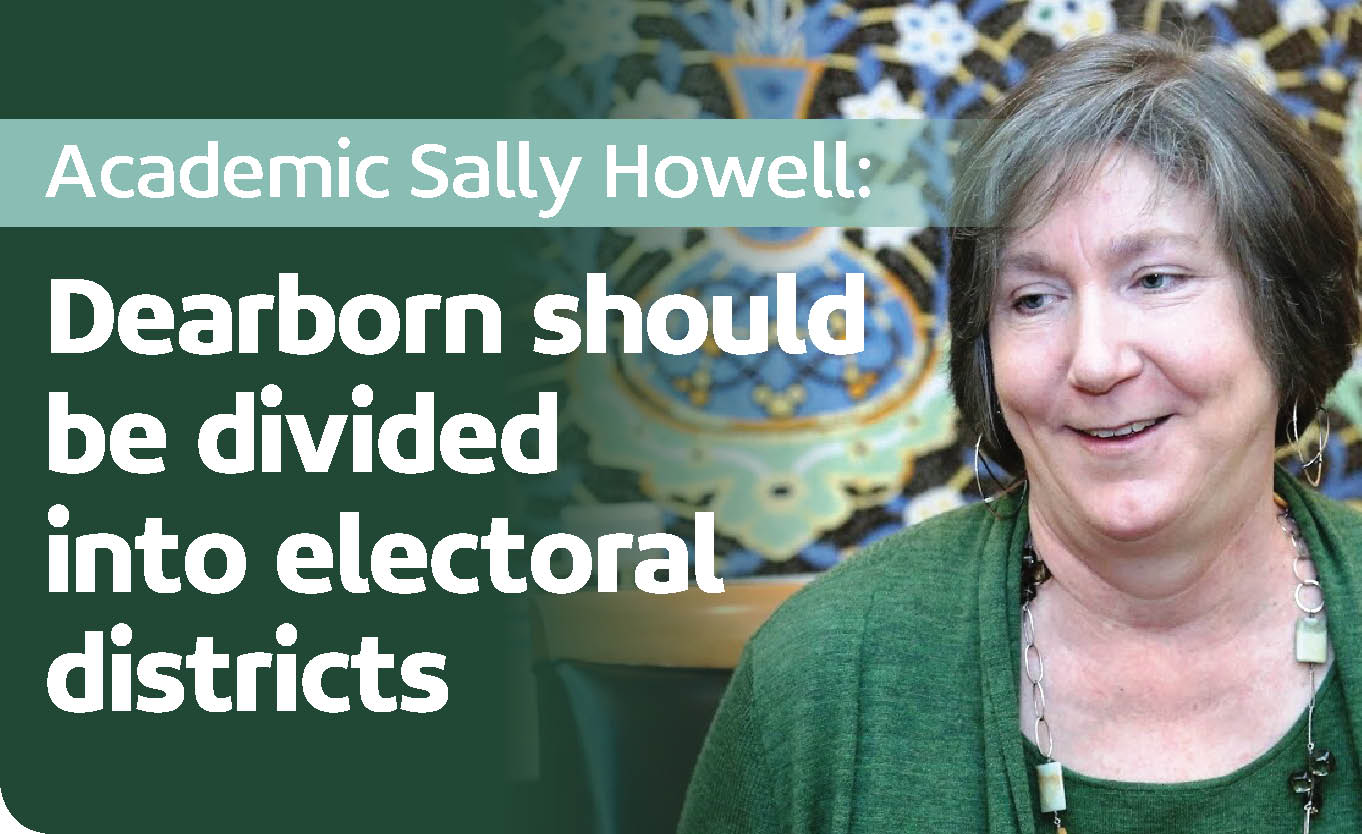The growing Yemeni American community should be represented in Dearborn city hall, said Sally Howell, the director of the Center for Arab American Studies at the University of Michigan – Dearborn.
The Yemeni American News
Howell, who is one of the pioneers of academic research on Arab Americans in the area, called for dividing Dearborn into electoral districts to allow representation from across the city.
Almost all elected officials in Dearborn reside in the west side, which is wealthier and more white.
Even Arab Americans in leadership positions live in the more affluent side of town, west of Southfield Freeway.
“I really advocate for the city of Dearborn having district elections and not open elections because for a long time the open elections kept Arabs from being elected to city council. Now that Arabs sort of manage the city council, it’s keeping Yemenis out,” Howell said.
“And I would like to think the Arab establishment in Dearborn can recognize that, and do something to rectify it.”
Neighboring Detroit introduced districts to its city council race in 2013. The move enabled the election of the city’s first Latina council member, Raquel Castaneda-Lopez.
Howell said Yemeni Americans’ contributions cannot be discounted. “You should be a part of the government of the City of Dearborn,” she added.
Howell, who is a relentless advocate for Arab American causes, talked to YAN about her involvement with the community; her “political awakening” on Palestine when she was in college; and her honeymoon in Yemen.
Her answers have been edited for space and style.
YAN- Can you tell us about you?
SH– I’m from old stock Americans. We are like the original people who settled the state of North Carolina so we have a long history in this country of displacing Native Americans, enslaving African Americans; we sort of celebrate ourselves as heroes. But a lot of the reality is that if you have been here a lot of time, your ancestors have a lot of blood on their hands.
I went to Davidson College in North Carolina. I majored in Middle East studies. I went to Palestine after my freshman year in college and I stayed in Nasra (Nazareth) with a family and that’s what got me interested in the Middle East.
I thought that Israelis came and made the desert bloom. My political awakening happened there. That was the year Israel was invading Lebanon (1982). I decided I wanted to be more educated and do my part to try and help address the racism of Zionism.
I got hired to start the arts program at ACCESS. I went back and I got my PhD from the University of Michigan and I have published three books and I’m working on a 4th book.
One book, called “Citizenship and Crisis: Arab Detroit after 9/11”, is based on a survey that the University of Michigan did in 2003. It was the first big survey of the Arab-American community.
My third book is a monograph which is based on my dissertation research called “Old Islam in Detroit: Reimagining the Muslim American Past”.
When I started doing research here in Detroit after I was in graduate school, I knew the Arab community really well, but I didn’t know the Muslim community. I thought it was my obligation to try and understand what was going on with the Muslim community better, in all of its diversity.

YAN- After 9/11 there was a tone inside the Arab American community to see each other as different, as Iraqis, Yemenis, Palestinians etc. Did you feel that as well?
SH- The Arab Community has always been diverse and it’s always been very aware of its differences, definitely in times of conflict.
It used to be that the Christian and Muslim Arabs did a lot of things together; they collaborated. But during the Lebanese Civil War they kind of separated a little bit.
Right now we see a separation between the Lebanese who are supporting Assad and almost everybody else in Dearborn who are not.
Events overseas definitely drive this investment in difference, but the Yemeni community has a really distinctive history.
Most of the Yemenis who were here in the 60s and 70s were men. It was mostly people who came here and worked in the auto industry or they worked in the coney islands and they supported families back in Yemen.
The Yemeni community wasn’t a community in the same way that the Lebanese were with their big families.
There’s always been Yemeni families here and increasingly since the 1980s, and now we’ve got this incredible growth of the Yemeni community.
YAN- Do you have a personal story about Yemen?
SH- I’m married to an anthropologist, Andrew Shryock, and his initial intention was to do his dissertation research in Yemen so we went to Yemen on our honeymoon.
We stayed near Marib in the diwan of this big sheikh. There were all these guys there with machine guns chewing Qat until the middle of the night and playing cards. Then they would go home and we would sleep over in a corner. Not a traditional honeymoon.
We had a great time. We loved Yemen and we thought it was beautiful. The people were so nice to us.













